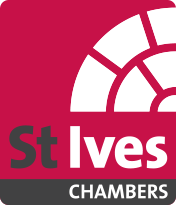Covid 19: Tough Justice on the long haul back to normality by Nicholas Starks
“Any earlier rose-tinted thoughts that ‘this will all be over by July’ have sadly evaporated … it is unlikely that anything approaching a return to the normal court working environment will be achieved before the end of 2020 or even the spring of 2021”
(McFarlane P, “The Family Court and Covid 19: The Road Ahead” 9.6.20)
On 9 June 2020 McFarlane P published “The Road Ahead,” a “framework within which the Family Court must operate for the foreseeable future”. It predominantly dwells upon children’s proceedings (a single nod towards financial remedy work appears at para 37, and Mostyn J is yet to pass comment), but it is the most authoritative and recent “steer” and will undoubtedly be referenced in financial remedy proceedings. The document highlights:
- The growing backlog of work (“The Family Court was not coping with the pre-Covid workload”);
- The need for finality as well as fairness (justice delayed is justice denied) “nettles will need to be grasped”;
- Whilst all courts are expected to reopen by early July, and the use of ‘hybrid hearings’ (where one or more lay parties attend court to give evidence and others are dealt with remotely) is encouraged, safe courtrooms are limited in numbers and under demand from all jurisdictions (civil, family and crime): “whilst there will be some capacity for the courts to conduct face-to-face hearings, the available facilities will be limited”;
- As such “it is plain that a good deal of the day to day work of the court will still have to continue to be undertaken remotely during the coming months”;
- “Remote hearings are likely to continue to be the predominant method of hearing for ALL cases and not just case management or short hearings … adjourning cases indefinitely or for a period of many months will not therefor be an option”
- “telephone hearings … are unlikely to be suitable for any hearings where evidence is to be given or where the hearing is otherwise of substance”
- “CVP” is currently the preferred video platform;
- However “there will need to be a very radical reduction in the amount of time that the court affords to each hearing … and for oral evidence or oral submissions to be cut down to that which it is necessary for the court to hear … parties will not be allowed to litigate every issue … an oral hearing will encompass only that which is necessary”
- “Clear, focused and very robust management of cases will be vital”
- At para 49 a “Covid Case Management Checklist” is provided, to which careful regard should be had;
- “Active thought” should be given in all remote cases to client’s participating from solicitor’s offices or counsel’s chambers where they can be supported by someone from their legal team.
The importance of ADR (including mediation and arbitration) in financial remedy work was again highlighted, given “the court will struggle to cope with the volume of cases in a restricted working environment” and in relation to which St Ives is proud to offer a suite of services, full details of which can be found on its website.
Nicholas Starks
June 2020






